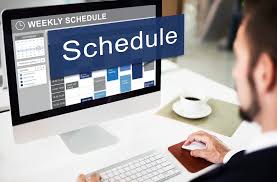Effective appointment-setting scripts are crucial resources in the sales industry for interacting with potential customers, establishing rapport, and eventually obtaining worthwhile meetings. It takes careful planning, strategic language, and a thorough comprehension of the target audience to create messaging that is compelling and resonates with potential clients. We’ll go over the essential components of successful appointment setting scripts in this blog post and offer helpful advice for creating messaging that works.
Recognizing the Value of Scripts for Appointment Setting
Scripts for scheduling appointments provide the framework for fruitful dialogues between sales people and prospective customers. They offer a methodical framework for directing the discussion, emphasizing important ideas, and responding to typical objections. Effective scripts increase the chances of securing appointments and advancing prospects through the sales funnel by assisting sales representatives in maintaining consistency, confidence, and focus in their outreach efforts.
Essential Components of a Successful Meeting Configuring Scripts
- Introduction: First of all, A succinct introduction that grabs the prospect’s interest and establishes your credibility should come first in your script. Indicate in detail why you are calling or reaching out, along with who you are and the company you represent. To keep the prospect interested, keep your message brief and direct.
- Value Proposition: Clearly state the advantages your good or service offers the potential customer. Concentrate on resolving their issues, problems, or objectives while emphasizing the special qualities or benefits of your product. To spark interest and stimulate curiosity, use language that speaks to the prospect’s needs and passions.
- Qualification Questions: Open-ended questions are a good way to qualify a prospect and learn more about their needs, preferences, and obstacles. Customize your inquiries to identify particular problems or opportunities that your product or service can solve. Here, it’s important to actively listen to the prospect and use their comments to direct the discussion.
- Managing Objections: Be aware of typical concerns that potential customers could have, and be ready with appropriate answers to allay them. Acknowledge the prospect’s worries and, in order to allay their fears, offer clarification or more information. Be ready to respond professionally and confidently to objections such as financial limitations, scheduling conflicts, or skepticism.
- Closing Remark: Conclude your script with a succinct and engaging note that encourages the prospect to proceed, be it making an appointment, showing up for a demo, or requesting additional details. Reiterate the importance of the chance and the reasons the prospect would benefit from a meeting with you.
Advice for Creating an Eye-Catching Appointment Configuring Scripts
- Personalization: Adapt your script to each prospect’s unique requirements, tastes, and passions. To better personalize your message and show that you understand their business, do some preliminary research on the prospect’s organization, sector, and position.
- Clarity and Conciseness: Make sure your script is easy to read, concise, and clear. Steer clear of jargon, technical terms, and excessively complicated language that could overwhelm or confuse the prospect. Concentrate on delivering your point in an understandable and persuasive way.
- Empathy and Authenticity: Communicate with sincerity and authenticity while demonstrating empathy for the difficulties and worries of the prospect. Create a genuine connection and show that you genuinely want to assist in meeting the needs of the prospect in order to build rapport.
- Practice and Refinement: Rehearse reading your script aloud until the language and tone make you feel at ease and assured. To hone your delivery, pinpoint areas for development, and polish your messaging for maximum impact, role-play with coworkers or mentors.
- Continuous Improvement: Review and improve your appointment-setting scripts on a regular basis in response to comments, performance indicators, and lessons learned from both successful and unsuccessful interactions. Modify your messaging to take into account shifts in consumer preferences, company goals, and the state of the market. For further insights on how to generate sales leads effectively through appointment setting, consider consulting with a trusted B2B Lead Generation Agency like Spark Leads.
In Summary
A key component of a successful sales outreach strategy is writing scripts that are compelling enough to set appointments. Scripts that resonate with prospects and encourage engagement can be made by combining essential components like a compelling value proposition, qualification questions, objection handling, and a strong closing statement. Don’t forget to tailor your message, emphasize succinctness and clarity, practice and perfect your delivery, and always look for ways to get better. You can boost the efficiency of your appointment-setting efforts and propel the success of your sales initiatives with a deliberate approach and a dedication to creating compelling messaging, find more here.



